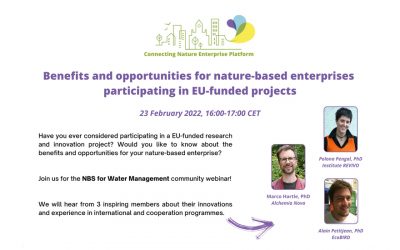PROMA: “The great challenge of humanity is the supply of the necessary energy for a solidarity and sustainable development”
This is stated by José María Fernández González, PROMA Manager, a spin off of the University of Granada focused on technical assistance, advice, research and development and application of results in the field of urban services engineering and Smart Cities..
12 Nov de 2019
José María Fernández González, PROMA manager is a scholar in the field of sustainability, as reflected in the interview recently published in the latest issue of the Sogama Newsletter.
Speak with the firmness and security of knowledge, rigor and extensive professional experience in environmental engineering. PROMA, Environmental Engineering Projects, a spin-off of the University of Granada focused on technical assistance, advice, research and development, and application of results in the field of urban services engineering and Smart Cities. Not surprisingly, it develops technology and knowledge for data collection and application of results in the integral water cycle, integral cycle of waste management, urban mobility and energy efficiency. A whole compendium of areas closely linked to the circular economy.
Projects in Spain and abroad
At the state level, it is developing various studies and research son the use of biogas generated in waste treatment and disposal facilities, as well as in wastewater treatment plants for conversion into biomethane so that it can be used as fuel or injected in natural gas networks.
It also works on a web platform to measure the quality of the provision of road cleaning, waste collection and maintenance of green areas, provides basic engineering for the development of a technology for the treatment of organic matter of municipal waste through the use of insect larvae and has recently participated in the elaboration of a LIFE research project for bioremediation of soils contaminated with hydrocarbons through bioproducts obtained from the recovery of agri-food waste.
But his work is not limited only to Spanish territory. He has contributed his knowledge in the elaboration of the National Plan for Integrated Waste Management of Panama and, in the case of the Democratic Republic of the Congo, has begun the work of characterization of the waste produced in the city of Kinshasa in order to obtain previous data for the feasibility study of an energy production plant from non-recyclable waste. A treatment that José María Fernández defends without palliative against the excessive use of the landfill (source of greenhouse gas emissions), since it allows transforming the waste into a renewable energy resource of great value.
The new generations, the hope
It considers precisely that, with the growth of the population and its greater concentration in the cities, the energy demand per capita will increase. Hence, he considers that the great challenge of humanity is to be able to provide the energy necessary for human development in a solidary and sustainable way, having to bet in the short term on renewable sources as the only option to mitigate the climate crisis.
In his opinion, and as long as the environmental costs of the production of energy and consumer goods continue to be socialized, it will be difficult for large corporations to change their production model. Hence, although he considers that we are still far from closing the circle, he has faith in the new generations. Aware of the situation of crisis and environmental deterioration, they are hitting hard, demanding efficient policies in the use of resources, so, under their criteria, there is room for optimism.
+ Related posts
Know the advantages of being associated
Smart City Cluster enhances collaboration among its partners, favoring research, development and innovation in the different solutions and technologies aimed at the development of smart cities.
Smart City Cluster is an alliance of private companies and institutions that work for the development of smart cities.



